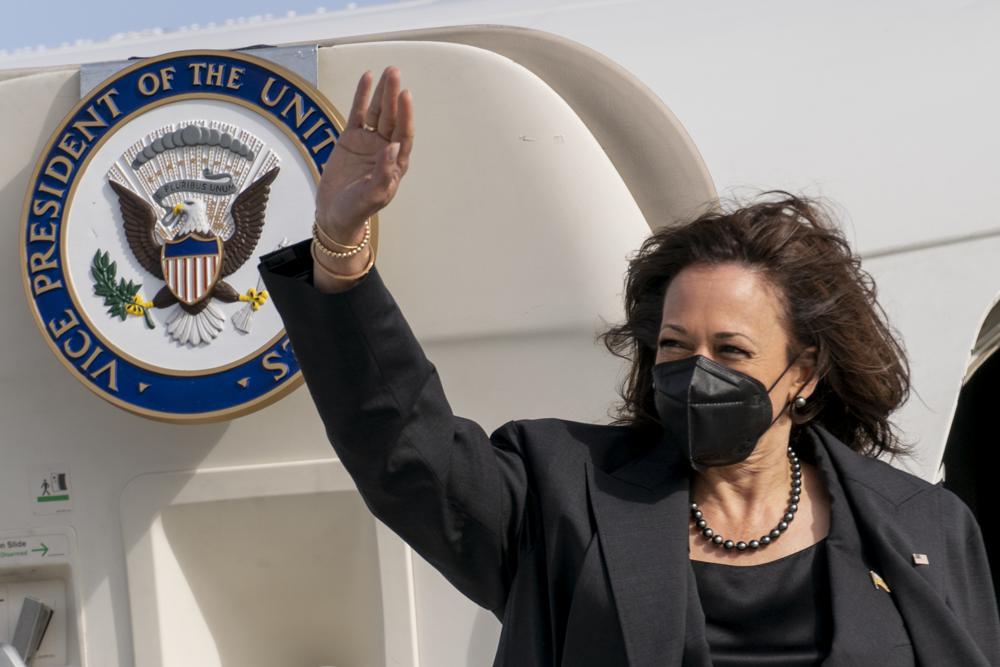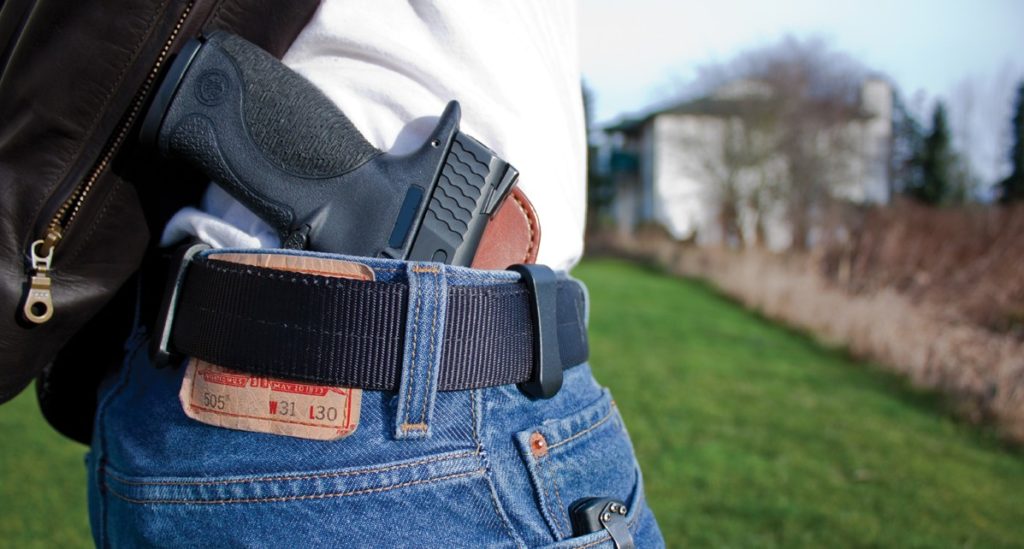Kamala Harris acknowledges ‘real possibility of war’ in Europe

Acknowledging “the real possibility of war,” Vice President Kamala Harris wrapped up a weekend of outreach to European allies with a push to bolster the West’s resolve in confronting Moscow with crippling sanctions as increasingly dire signs suggest Russia’s Vladimir Putin plans to order an invasion of Ukraine. In a burst of diplomacy at the annual Munich Security Conference, Harris tried to make the case to American allies that rapidly escalating tensions on the Ukraine-Russian border meant European security was under “direct threat” and there should be unified support for economic penalties if the Kremlin invades its neighbor. “We’re talking about the potential for war in Europe. I mean, let’s really take a moment to understand the significance of what we’re talking about,” Harris told reporters before her return to Washington. Europe, she said, might be at its most perilous moment since the end of World War II. “It’s been over 70 years, and through those 70 years … there has been peace and security,” she said. “We are talking about the real possibility of war in Europe.” President Joe Biden was to meet with his national security team later Sunday in Washington to discuss the unfolding developments. Harris planned to participate while flying back from Germany. Before leaving Munich, Harris and her team briefed them about her meetings and exchanges at the conference. Biden is scheduled to hold a virtual meeting with Group of Seven leaders on Thursday to discuss Ukraine, and his top diplomat, Secretary of State Antony Blinken, intends to meet in Europe with Russian Foreign Minister Sergey Lavrov this coming week — talks that the American says will be scrapped if Moscow has invaded. In Ukraine, shelling on Sunday escalated in and around territory held by Russia-backed rebels, separatists evacuated thousands of women and children, and Putin oversaw tests of nuclear-capable missiles. Putin has massed more than 150,000 Russian forces at the border. During a series of choreographed meetings and a major address at the security conference, Harris told global leaders they were at a “defining” and “decisive” moment for the world. Harris met with President Volodymyr Zelenskyy of Ukraine, European Commission President Ursula von der Leyen, NATO Secretary-General Jens Stoltenberg, the leaders of the three Baltic nations, German Chancellor Olaf Scholz and Greek Prime Minister Kyriakos Mitsotakis. Biden sent Harris to Germany with straightforward marching orders to amplify his concern that a Russian invasion was highly likely and make clear to European allies that they must be ready to impose the toughest sanctions Moscow has ever seen. Harris told reporters that an invasion — and subsequent sanctions on Russia — would likely have costs for Americans, as well. “When America stands for principles, and all of the things that we hold dear, it requires sometimes for us to put ourselves out there in a way that maybe we will incur some cost,” Harris said. “In this situation, that may relate to energy costs.” The vice president’s appearance in Munich was largely overshadowed by Biden’s declaration from the White House late Friday that he was “convinced” that Putin had decided to invade. And her message of unity in Europe in the face of Russian aggression was overtaken by Zelenskyy. Soon after meeting with Harris on Saturday, he used his appearance at the conference to question why the U.S. and Europe were waiting to impose sanctions against Russia. “What are you waiting for?” Zelenskyy asked of Western leaders. He said the sanctions that targeted Russia after Ukraine’s economy collapses and “parts of our country will be occupied” would provide little comfort. Harris said she wouldn’t “second guess” Zelenskyy’s “desires for his country,” and she stood by the U.S. decision to hold off on preemptive sanctions. “The purpose of the sanctions has always been and continues to be deterrence,” she said. Blinken also told NBC’s “Meet the Press” that “as soon as you trigger the sanctions, of course, any deterrent effect they may have is gone, they get absorbed by President Putin, and he moves on.” Zelenskyy also repeated Ukraine’s desire to join NATO even as Putin demands guarantees from the U.S. and the alliance of that not ever happening. Harris, meantime, heard pleas to increase U.S. troop levels from Baltic leaders who worry their countries could be the next ones that Russia sets its eyes on. Lithuania’s president, Gitanas Nauseda, urged the U.S., which has bolstered its troop presence in the Baltics in recent weeks, to do even more and create a “permanent presence” in Lithuania. Currently, the U.S. deploys a small contingent of troops to the country on a rotational basis. Estonia’s prime minister, Kaja Kallas, echoed that call. “We have lost our independence to Russia once, and we don’t want it to happen again,” she said. Harris offered no promises, though she predicted in her address at the conference that the U.S. “will further reinforce our NATO Allies on the eastern flank” if Russia invades Ukraine. Republished with the permission of the Associated Press.
School choice proposal goes to study group

A school choice bill that could give parents $5,500 in state funds to send a child to private school is headed to a study group for negotiations after opposition from some education organizations and lawmakers. Republican Sen. Del Marsh said the Republican majority leaders have put together a group to look at his legislation. He said he is optimistic they can develop a compromise. The Parents’ Choice Act, as introduced by Marsh, would establish a path for parents to tap state money normally used on their child’s public school education — about $5,500 per student per year — and use it to pay for private school, a public school outside their district, homeschooling expenses, or other alternate education paths. The program would cost up to $537 million annually, according to an estimate from the Legislative Fiscal Office. Marsh, who has been a vocal proponent of school choice options during his time in the Alabama Legislature, said the state’s constantly lagging test scores show a drastic change is needed. “We all acknowledge we’ve got a problem. If you look at our test scores, ACT scores, we’ve got to do something. I think my bill is a good approach at giving parents more decision in their children’s education,” Marsh said. Marsh said the public system “controls all of education in the state, and ”this is a first attempt to give parents more choice.” The Senate Education Policy Committee approved the bill earlier this month, but it drew heavy criticism from some education groups over the diversion of money from public schools. “The Parent’s Choice Bill is nothing but a shell game of a voucher program to divert funding from our community schools. Alabama’s students and educators cannot afford to take almost a half a billion-dollar hit from public education,” the Alabama Education Association, which represents public school teachers and employees, said in a statement about the bill. Study groups in the past have become graveyards for contentious proposals, and Marsh said he is concerned about that. “I’ve got commitments that this is not just trying to bury the bill,” Marsh said. Under Marsh’s bill, the program would initially be limited to low-income families but would be available to everyone in the 2024-2025 school year. South Carolina lawmakers are looking at a smaller school choice proposal for low-income and military families. Alabama Senate President Pro Tem Greg Reed said Thursday that the “negotiations are moving forward.” “Obviously, the bill has got a lot of controversy. Those that are very much for it, are passionate about it,” Reed said, adding that there is equal passion among people who oppose it. Republished with the permission of the Associated Press.
Supporters face uphill battle to decriminalize marijuana

Supporters are continuing to push for Alabama to join states that have decriminalized possession of small amounts of marijuana, but the state senator behind the bill acknowledged the measure has a bleak outlook in an election-year session. The Senate Judiciary Committee on Wednesday approved Democratic Sen. Bobby Singleton’s bill, which would make possession of less than two ounces of marijuana punishable only by a civil fine. “What we’re doing is basically trying to just make sure that we are not locking people up on marijuana charges,” Singleton said. An offense would be classified as a violation, a step below a misdemeanor, and carry a fine of up to $250. However, he acknowledged the outlook for the bill is “not bright considering it is an election year.” Twenty-seven states have decriminalized small amounts of marijuana, according to the National Conference of State Legislatures, and 18 have legalized small amounts of marijuana for adult recreational use. The Alabama bill would also do away with jail time for possession of more than two ounces of marijuana for personal use— making it a misdemeanor until a person racks up multiple violations. Trafficking laws would still apply. Singleton said it was his intent to only address two ounces or less and will revert to that if the bill comes to the Senate floor. Republished with the permission of the Associated Press.
House to vote on allowing concealed handguns without permit

The Alabama House of Representatives could vote soon on legislation to do away with the requirement for a person to get a permit to carry a concealed handgun in public. House Speaker Mac McCutcheon said there is a good chance representatives will vote on the bill as early as Tuesday. House Republicans, who hold a lopsided majority in the chamber, have named the legislation as a priority for the year. The bill would do away with permits for people who carry a handgun under their clothes or in a purse or bag when they go in public. It would also do away with the current requirement for people without concealed carry permits to keep handguns unloaded and secured when driving. The bill has been championed by gun-rights groups who argue that people shouldn’t have to get a permit, which requires paying a fee, to carry a handgun they legally own. State sheriffs and other law enforcement officials have opposed the legislation, arguing that the permits provide a crucial tool to combat crime and enhance public safety. There are 21 states that allow concealed weapons in public without a permit, according to Stateline, an initiative of the Pew Charitable Trust. If approved in the House, the bill will then go to the Senate. Republished with the permission of the Associated Press.


